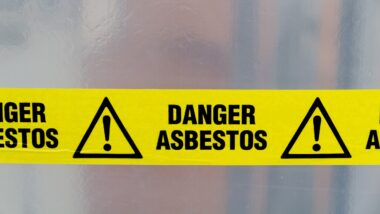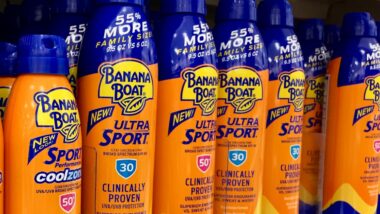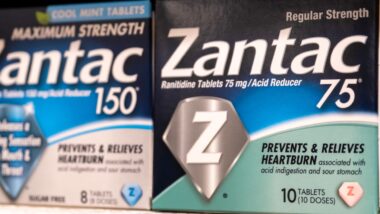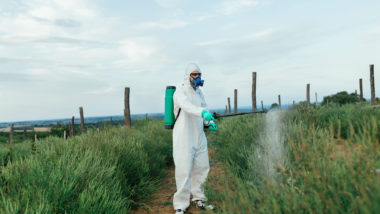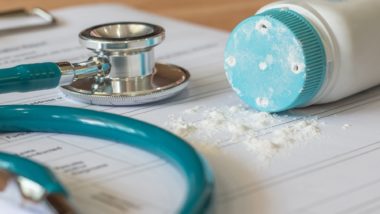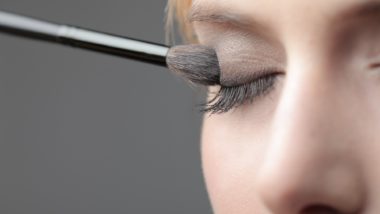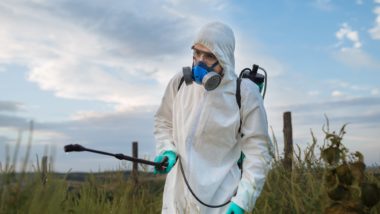Top Class Actions’s website and social media posts use affiliate links. If you make a purchase using such links, we may receive a commission, but it will not result in any additional charges to you. Please review our Affiliate Link Disclosure for more information.
The Johnson and Johnson Baby Powder recall has many consumers concerned about asbestos contamination, especially in light of recent litigation. Plaintiffs in a number of lawsuits have won verdicts in the nine and ten-figure range; most recently, a state court in New Jersey ordered the company to pay $750 million to four plaintiffs who claimed their cancer was caused by Johnson’s Baby Powder asbestos contamination.
In October, 2019, the FDA announced that it had discovered traces of asbestos in a lot of Baby Powder and that the manufacturer was voluntarily recalling the affected product. This has raised the question of whether or not it is safe to use Johnson’s Baby Powder.
Johnson and Johnson Baby Powder Asbestos
Johnson & Johnson has long denied that the talc used in its Baby Powder and Shower to Shower products have ever contained asbestos. However, an investigation by Reuters that came out in December of 2018 uncovered evidence that the company had actually had its talc tested by three different labs back in the early 1970s, and all three had discovered asbestos. The results of one of those tests found the level of asbestos contamination to be “rather high.”
There were also reports from a consulting lab, dating from as early as 1957, informing Johnson & Johnson of the presence of hard, needle-like asbestos fibers — known as tremolite — it the talc it had imported from Italy. Tremolite is one of the forms of asbestos that has been linked to mesothelioma.
It is a scientific fact that talc often contains asbestos; diseases such as asbestosis and mesothelioma have long been considered occupational risks for talc miners. The reason is that both talc and asbestos are formed by the same geologic processes, and are frequently found in proximity to one another. Significantly, Imerys Talc, which was a co-defendant in an asbestos lawsuit in Missouri that ended in a $4.7 billion verdict for 22 plaintiffs, settled the claims against them prior to the end of the trial.
Many cancers caused by exposure to asbestos take years or decades to develop, making it very important for consumers to avoid being exposed to the substance in the first place.
Although asbestos used to be used in many common products, today it is regulated due to its carcinogenic properties. In addition to possibly contaminating baby powder, cosmetics, and other talc-based products, asbestos may also be found in tiles, roofing, textiles, insulation, auto parts, hair dryers, and other products. While workers in industries that increase the risk of exposure to asbestos, such as construction workers, shipyard and railroad workers, and auto mechanics, may be aware of the risks of asbestos and wear protective equipment, many consumers may not be aware that asbestos may be inside common products in their own home.
Many makeup products that have been found to contain talc contaminated with asbestos are cheap products marketed for children or teens. According to some studies, approximately 20 percent of makeup products may be contaminated with the carcinogen.
 Johnson and Johnson Lawsuit
Johnson and Johnson Lawsuit
Is it safe to use Johnson’s Baby Powder? At least five juries have said no.
In one case, Johnson & Johnson was ordered to pay $750 million in punitive damages to four plaintiffs suffering from mesothelioma, a particularly deadly cancer affecting the visceral lining. Last summer, a jury in New York awarded $300 million in punitive damages to a woman who is suffering from the same disease. Currently, Johnson & Johnson faces approximately 16,000 additional claims.
Baby powder asbestos cancer lawsuits have been filed over cases of mesothelioma as well as ovarian cancer. Mesothelioma affects the thin tissue covering the internal organs, called the mesothelium, and is an aggressive, deadly form of cancer that often cannot be cured.
Many women use baby powder as a personal hygiene product without realizing that they may be risking their health. Repeated exposure to the product may increase their risk of developing ovarian cancer.
Ovarian cancer affects the ovaries, and often goes undetected until the later and more dangerous stages, when it becomes much more difficult to treat.
Johnson and Johnson Baby Powder Recall
After decades of denial, preliminary testing finally revealed the presence of chrysotile fibers, a type of asbestos that was commonly used in many industries during the 20th Century. The FDA says that it expects full results to be available by the end of the year. In the wake of the publication of those results, a Johnson and Johnson Baby Powder recall was finally issued last October for a single lot, affecting 33,000 bottles.
Stating that the company was acting “out of an abundance of caution,” Johnson & Johnson continues to claim that its product is safe.
“Thousands of tests over the past 40 years repeatedly to confirm that our consumer talc products do not contain asbestos,” the company said.
Is It Safe To Use Now?
A new study has found that some groups of women face a higher cancer risk if they use talc-containing products on a routine basis. Results in other studies have not been as clear, however. Those who have concerns may consider switching to powder products containing corn starch rather than talc. Although the Johnson and Johnson baby powder recall removed talc-based baby powder from the market, the company has confirmed that it will continue to sell cornstarch-based powder, which is less likely to be contaminated with asbestos.
Filing a Johnson and Johnson Baby Powder Lawsuit
If you or someone you love has been diagnosed with cancer after long-term exposure to talc-based baby powder, even if that product was not included in the Johnson and Johnson baby powder recall, you may be able to file a lawsuit and pursue compensation. Filing a lawsuit cannot take away the pain and suffering caused by a cancer diagnosis, nor can it bring a loved one back to life, but it can at least help to alleviate the financial burden incurred by medical expenses, lost wages, and more.
Filing a lawsuit can be a daunting prospect, especially while dealing with health complications, so Top Class Actions has laid the groundwork for you by connecting you with an experienced attorney. Consulting an attorney can help you determine if you have a claim, navigate the complexities of litigation, and maximize your potential compensation.
Do YOU have a legal claim? Fill out the form on this page now for a free, immediate, and confidential case evaluation. The attorneys who work with Top Class Actions will contact you if you qualify to let you know if an individual lawsuit or class action lawsuit is best for you. [In general, baby powder cancer lawsuits are filed individually by each plaintiff and are not class actions.] Hurry — statutes of limitations may apply.
ATTORNEY ADVERTISING
Top Class Actions is a Proud Member of the American Bar Association
LEGAL INFORMATION IS NOT LEGAL ADVICE
Top Class Actions Legal Statement
©2008 – 2024 Top Class Actions® LLC
Various Trademarks held by their respective owners
This website is not intended for viewing or usage by European Union citizens.
Get Help – It’s Free
Join a Free Baby Powder Cancer Class Action Lawsuit Investigation
If you used Johnson’s Baby Powder, Shower to Shower, or another talcum powder product and were diagnosed with ovarian cancer, you may have a legal claim. Family members of loved ones who died of ovarian cancer can also join. Submit your information now for a free case evaluation.
An attorney will contact you if you qualify to discuss the details of your potential case at no charge to you.
PLEASE NOTE: If you want to participate in this investigation, it is imperative that you reply to the law firm if they call or email you. Failing to do so may result in you not getting signed up as a client or getting you dropped as a client.


 Johnson and Johnson Lawsuit
Johnson and Johnson Lawsuit